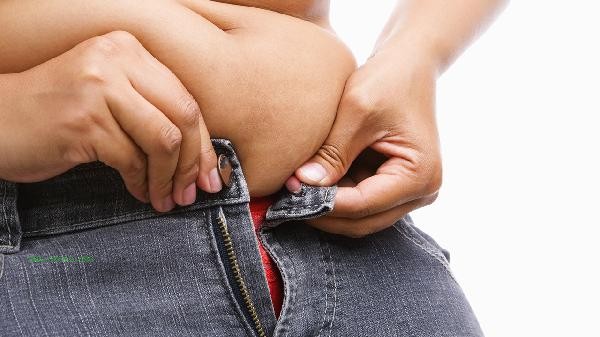Dieting to lose weight is usually caused by the decline of basic metabolic rate, muscle loss, water retention, hormone imbalance and adaptive thermogenic reaction.
1. Decreased metabolic rate:

Long term insufficient calorie intake can lead to the activation of energy-saving mechanisms in the body, and the basal metabolic rate can be reduced by 15% -30%. When the daily intake is less than 1200 calories, the level of thyroid hormone T3 decreases, the function of cellular mitochondria weakens, and energy consumption decreases. At this point, it is necessary to increase calorie intake in stages, such as 1-2 days per week, to restore energy and restart metabolism.
2. Muscle loss: When protein intake is insufficient, the body will break down muscles to provide energy. For every kilogram of muscle loss, the daily basal metabolism decreases by approximately 13 calories. Manifested as an increase in body fat percentage and an increase in waist to hip ratio while maintaining the same weight. It is recommended to ensure a daily intake of high-quality protein at 1.2-1.6 grams per kilogram of body weight, combined with resistance training to reduce muscle loss.
3. Water retention:
Low carbohydrate diets consume muscle glycogen, resulting in the loss of 3 grams of water per gram of glycogen. Restoring carbon water intake may cause a rebound of 2-3 kilograms of water. High salt diet or high stress hormone cortisol can also cause water and sodium retention. It is recommended to drink 30ml/kg body weight daily and control sodium intake within 2000mg.

4. Hormonal imbalance:
A decrease of more than 50% in leptin levels will trigger hunger signals, and an increase of 30% -40% in ghrelin levels. Women may experience menstrual disorders and decreased testosterone levels in men. Having less than 6 hours of sleep per day can exacerbate this disorder, while maintaining 7-9 hours of sleep can help maintain hormone balance.
5. Adaptive thermogenesis:
Continuous calorie deficit activates the hypothalamic survival defense mechanism, reducing non motor calorie expenditure such as shivering and restlessness by 200-400 kcal/day. It is recommended to adopt a step-by-step weight loss method, with a weekly weight loss of no more than 1% of the total weight, combined with high-intensity interval training twice a week to enhance metabolic flexibility. Adjusting dietary structure is more important than simply controlling calories. It is recommended to adopt a dietary pattern of high protein 30%, medium carbon water 40%, and low-fat 30%. Daily recording of changes in body circumference is more meaningful than weighing oneself, as a decrease of 1 centimeter in waist circumference is equivalent to a weight loss of 0.5 kilograms. It is recommended to exercise on an empty stomach in the morning with low-intensity aerobic exercise combined with resistance training in the evening. Consuming 2000-3000 calories per week can break through the plateau period. Maintain patience, the body needs 6-8 weeks to adapt to the new metabolic balance point.





Comments (0)
Leave a Comment
No comments yet
Be the first to share your thoughts!